Community members in a participatory planning session in Wanaraniya conducted by partner Nucleus Foundation
Celebrating the contribution of rural women worldwide
This week is marked by three international UN days: 15 October is International Day of Rural Women, 16 October is World Food Day, and 17 October is International Day for the Eradication of Poverty.
It is unquestionable that rural women worldwide play an important role at agricultural, community and household levels. As the Wanaraniya case clearly illustrates, women have a significant impact on, among others, sustainable development, local infrastructure, natural resource management, water and food security. This is the case not only in their own household but within the entire community. The impact of the women’s group in Wanaraniya is also an illustration of the interconnected nature of these three international UN days.
Water scarcity in Wanaraniya
The current water scheme in the Wanaraniya village means that the inflow of water to the tanks is very low and it takes more than two days to fill all three available tanks. The responsibility for water collection and management in the village lies primarily with the women, and they have to use the available water very scarcely in their own households; they frequently have to make it last throughout four days.
Water scarcity is further exacerbated during the dry season, as well as due to factors such as the growing population in the village, seasonal weather patterns and climate change. The water infrastructure is thus far below what is necessary to cater to the community’s needs for safe drinking water, as well as their use of water for domestic purposes (i.e. cooking, cleaning, personal hygiene, washing clothes).
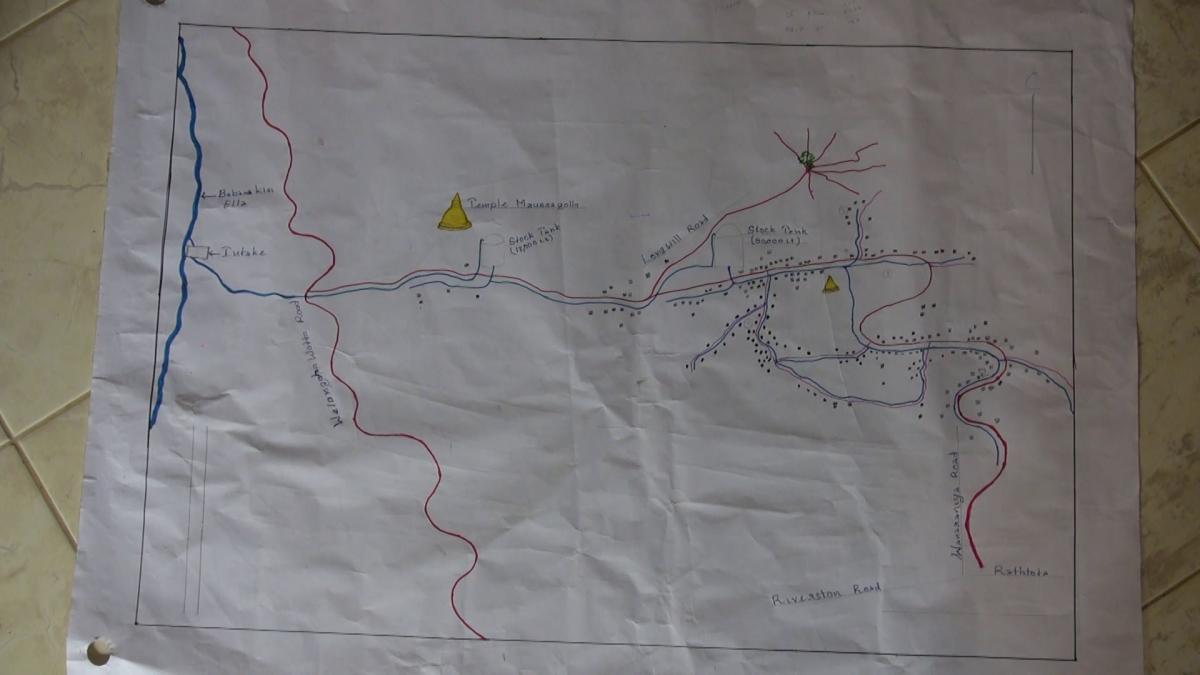
A map of the water infrastructure scheme in Wanaraniya village, illustrating the distances to the water streams
The role of women in water management
The women of the Wanaraniya village are thus an important actor in natural resource management and health of their community. Not only are they responsible for collecting and managing water in their households (which is a whole task in itself; they used to have to walk a long distance to the water stream and carry heavy loads back), they have also played an essential role in tackling the water scarcity issue in the village in the past 20 years.
The Visaka Women’s Society was formed back in 1999 by a group of women in Wanaraniya to address the water shortage in the village, which had at the time prevailed for over a decade. Ms Kumari Dharmarathna, Founder President of this women’s group, and its current Honorary Treasurer, tells more about the situation when the women’s group was formed:
“During that period, the biggest challenge we faced was water. To fulfil our needs, we had to walk about two and a half kilometers to the river to bathe and to collect water. There were only three wells in the village for our water. We had more than 280 families in the village and we couldn’t manage with just these three wells. For drinking water, some women had to wake up at 2.00 a.m, take their small kerosene bottle lamps and go to the well. During the dry season in June, July and August, we could not even get adequate water from the well. As the women in the village, we were especially affected by this, because water is something that is especially important for women.”
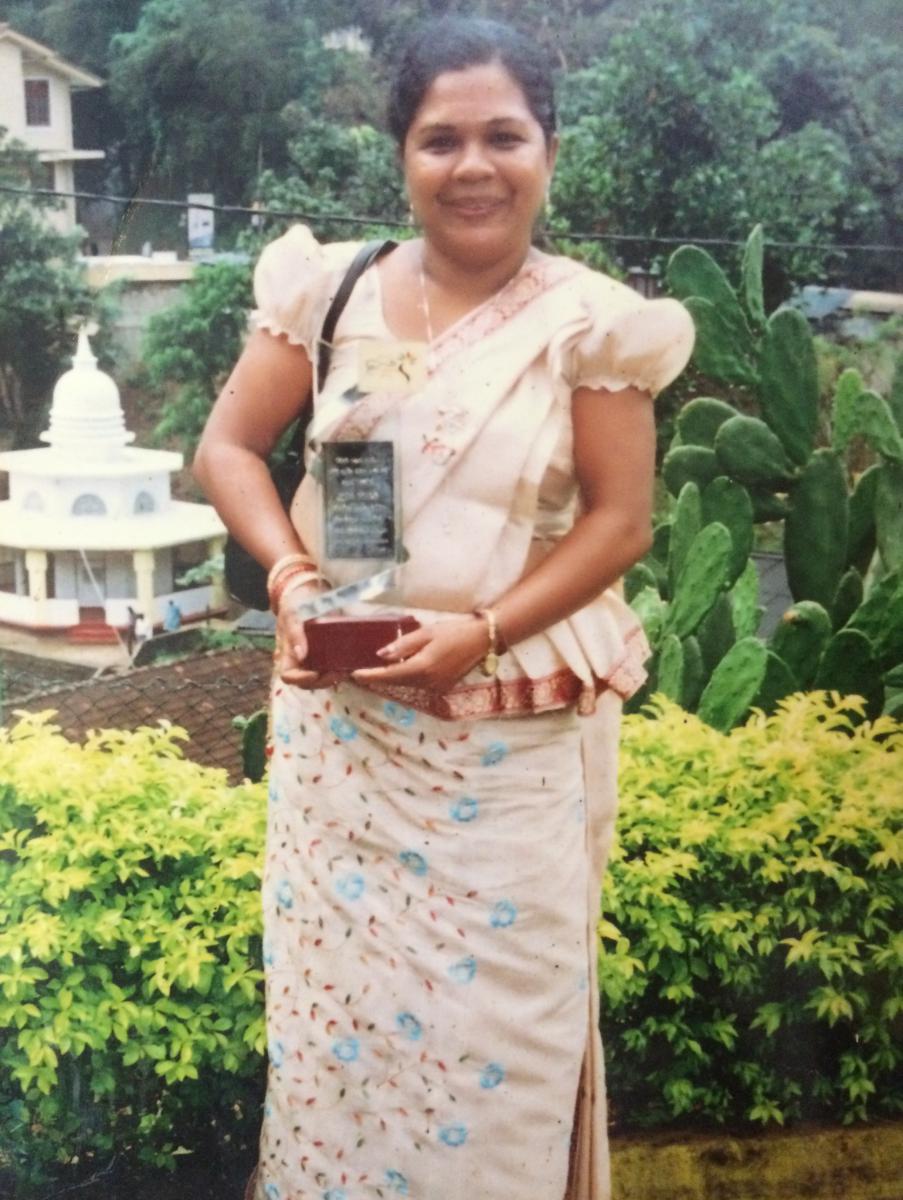
Ms Kumari Dharmarathna with an award she won for her efforts as Founder President of the Visaka Women’s Society
As Ms Kumari elaborates further, in 1999 the newly formed women’s society held many awareness meetings for the women in the village to address the issue of water shortage and its impact on the livelihoods of the community members. They also had to win the trust of everyone in the village. In the beginning, the women contributed finances themselves as start-up capital for their water society. They initiated the water scheme that would bring water to the village from the nearest source, the Bambarakiri Ella stream (which is about 6.5 km from the village).
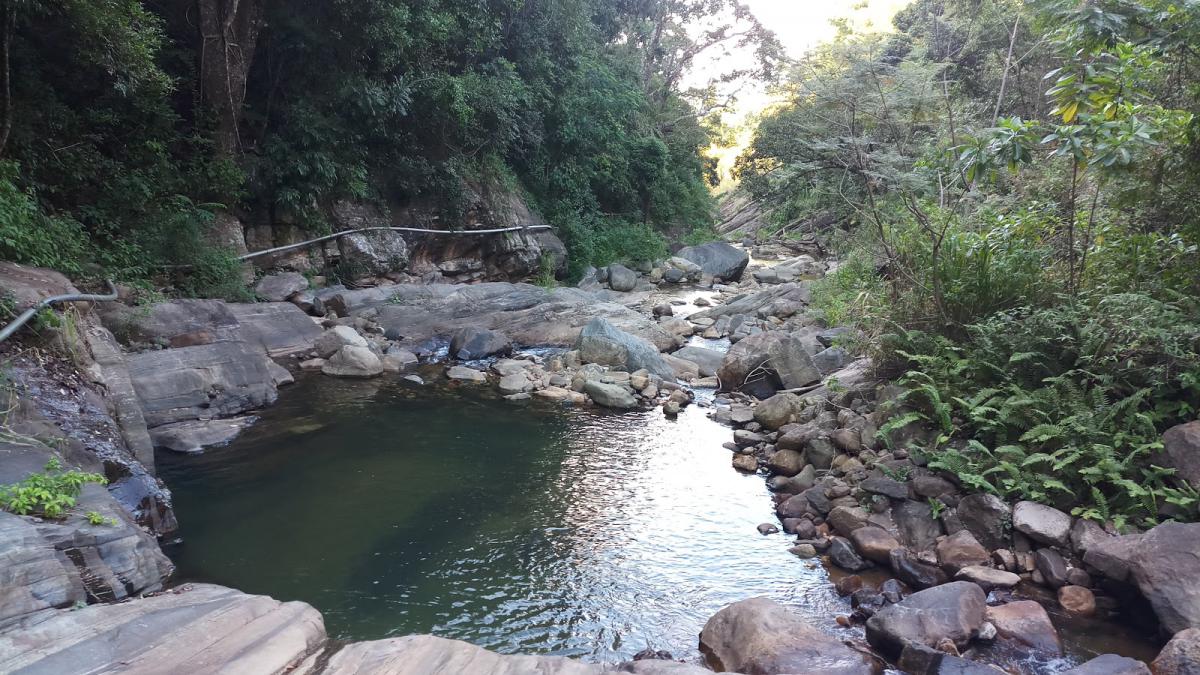
Bambarakiri Ella stream – the water source for Wanaraniya and many other villages in the area. Also visible in the picture is the transmission main line which delivers water to the tanks in the village
Through their own efforts and contributions, they also managed to develop an estimate for the new water system; the women from the village drew the sketches and made the budget themselves, at a cheaper rate than what the authorities had indicated. At the time, the scheme was designed to serve about 100 families; currently, they serve about 200 families in the community. This has resulted in water scarcity once again.
Improving the water infrastructure
Despite the significant progress made, water shortage is still a severe problem in the village. This is because the existing rural water supply system was not designed to meet the current demand (which is higher now due to the increasing population in the village). Presently, out of a total of 280 households, only 202 have access to a water supply connection. This limited supply of water is due to the insufficient diameter of the water transmission pipeline (which provides water from the river), lack of water storage facilities in the village, and limited distribution of water to households. Further, the transmission line runs exposed along the river bank, through parts of the jungle and home gardens, as it winds its way to the village. This results in regular breakages due to landslides, falling rocks, wild animals and human activity.
Solidaridad is currently working together with the village community on improving the water system infrastructure. The initiatives include replacing the existing pipeline with stronger pipes with a larger diameter, using more robust methods to secure the pipelines, providing new storage tanks at strategic locations in the village, and increasing distribution to reach families that do not have water connections. The improved infrastructure will also ensure that the tanks can be filled in 6 hours instead of 18, enabling the Water Society to distribute water every other day throughout the village.
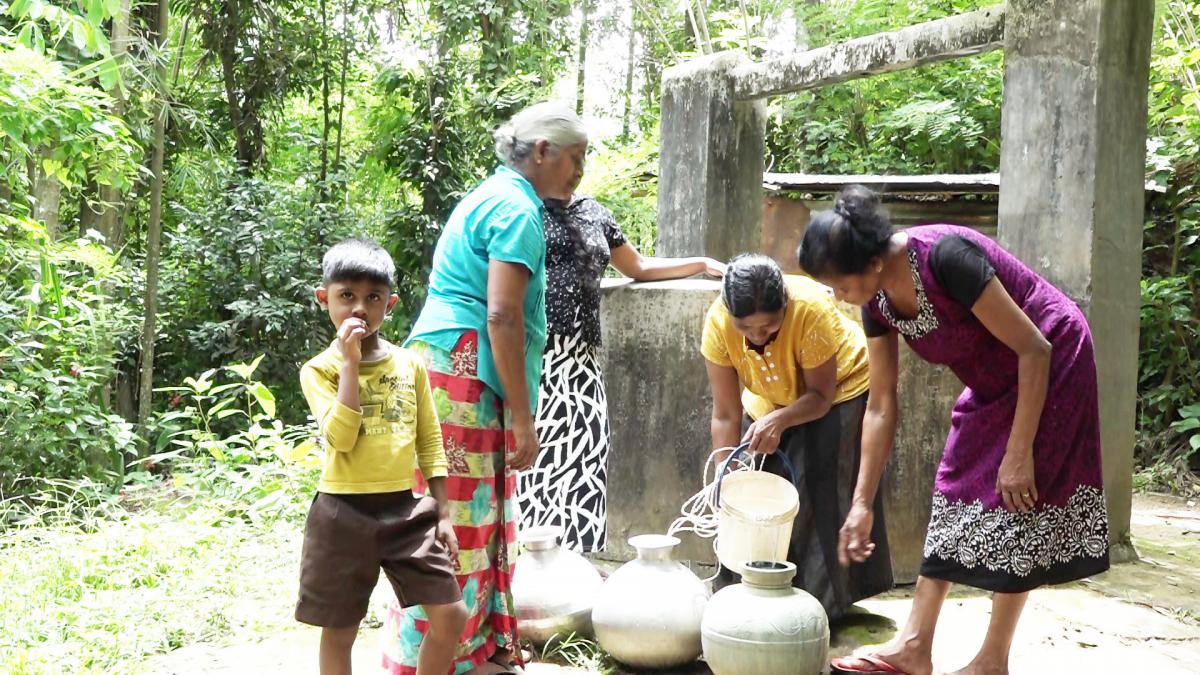
Women in Wanaraniya village are filling water pots at the local water well
This intervention will have a positive impact on the women in the community, drastically reducing their workload and the time spent on getting water for their household. This illustrates Solidaridad's gender inclusivity approach with respect to addressing the structural barriers that rural women frequently face in their participation. We make use of the ‘Gender ABC’ approach to tackle these barriers, whereby A stands for Analysing and addressing barr
iers to participation.
Ms Kumari further elaborates about the impact of the project, referring to the challenges they have faced with the existing water systems:
“… It was during this time that Solidaridad came in to help us through this EU-funded project. Solidaridad provided 1000 Type 3 inch pipes which were stronger and can provide more water. Furthermore, we are in the process of developing our distribution system by having 3 large capacity storage tanks that will be placed throughout the village to improve our distribution and help us cater to all families in the village. For this reason we are thankful to Solidaridad and the EU.”
Improved health and nutrition
In addition to the improved water scheme, Solidaridad has also conducted a series of programmes on ‘Family and Nutrition’ to train over 800 community leaders from the surrounding rural villages such as Wanaraniya and teachers from provincial schools on the preparation of low cost, easy to prepare nutritious meals using locally available ingredients.
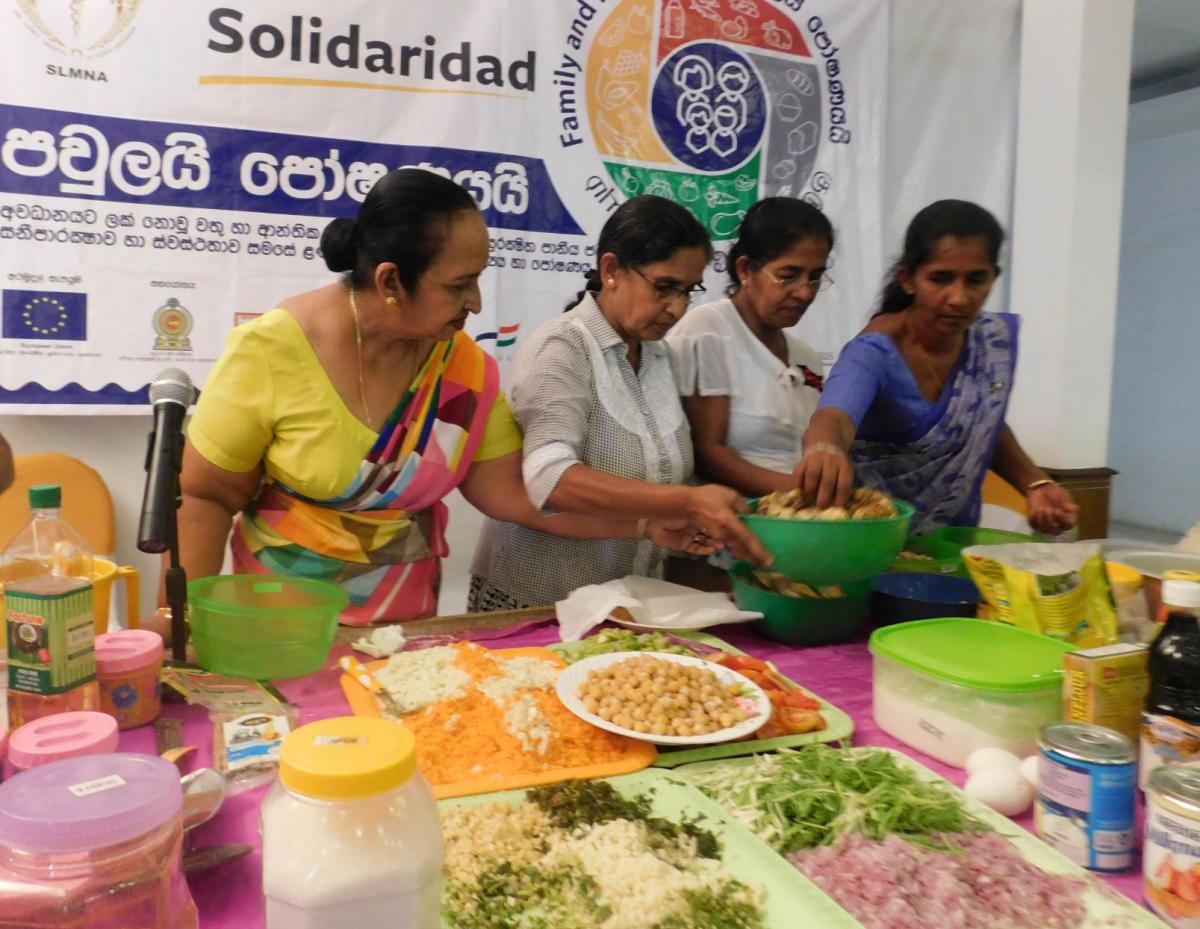
Family and Nutrition training in progress at Matale District
The objective of these programmes was to build the capacity of community leaders, school teachers and other grassroots level officials who can train their respective communities on providing the right nutrition for families in estates and surrounding communities. The leaders of the community based organizations from Wanaraniya also participated in these programmes.
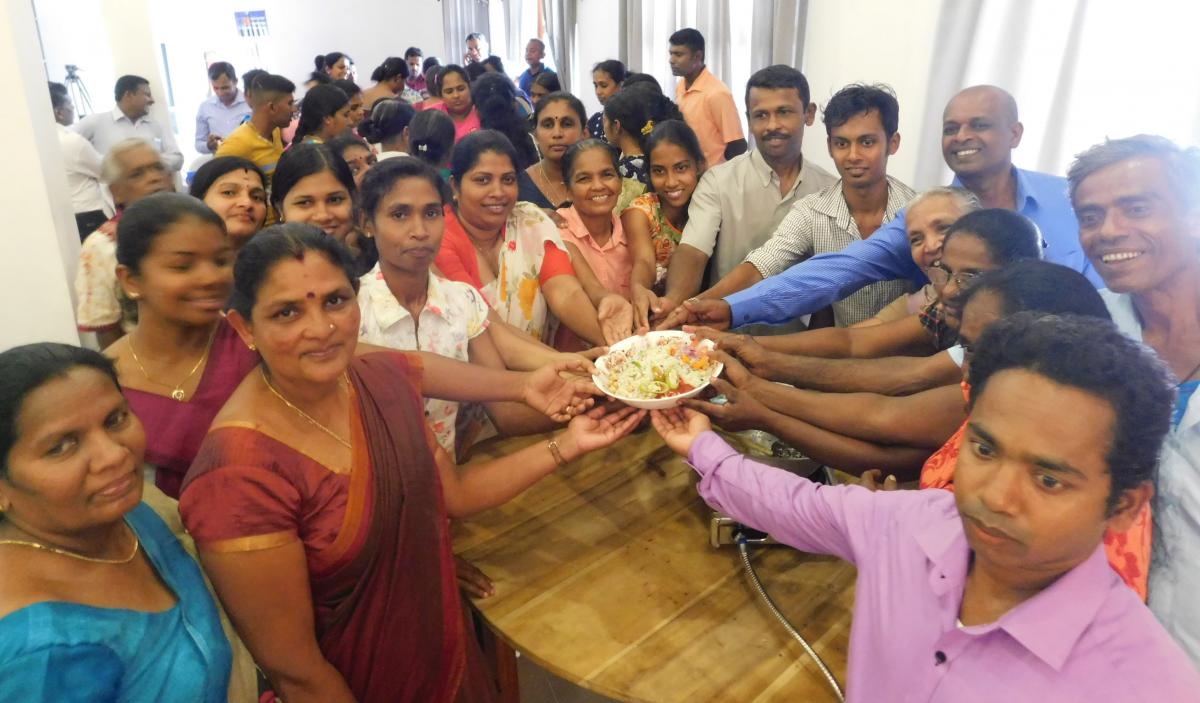
Participants at a Family & Nutrition training programme in Matale District
This intervention is also relevant in the context of our gender inclusivity approach on food and nutrition. The upcoming World Food Day, with this year’s theme ‘healthy diets’, is a day dedicated to food security and tackling hunger worldwide, and emphasizes that food security is a matter of not only the quantity, but also the quality of food.
Healthy and nutritious food is a human right and should be accessible to all. Unfortunately, this is often not the case. Women around the world play a fundamental role in their households and communities: in addition to contributing significantly to agriculture, rural women are usually the managers of the households, and are therefore key change agents in realizing food security.
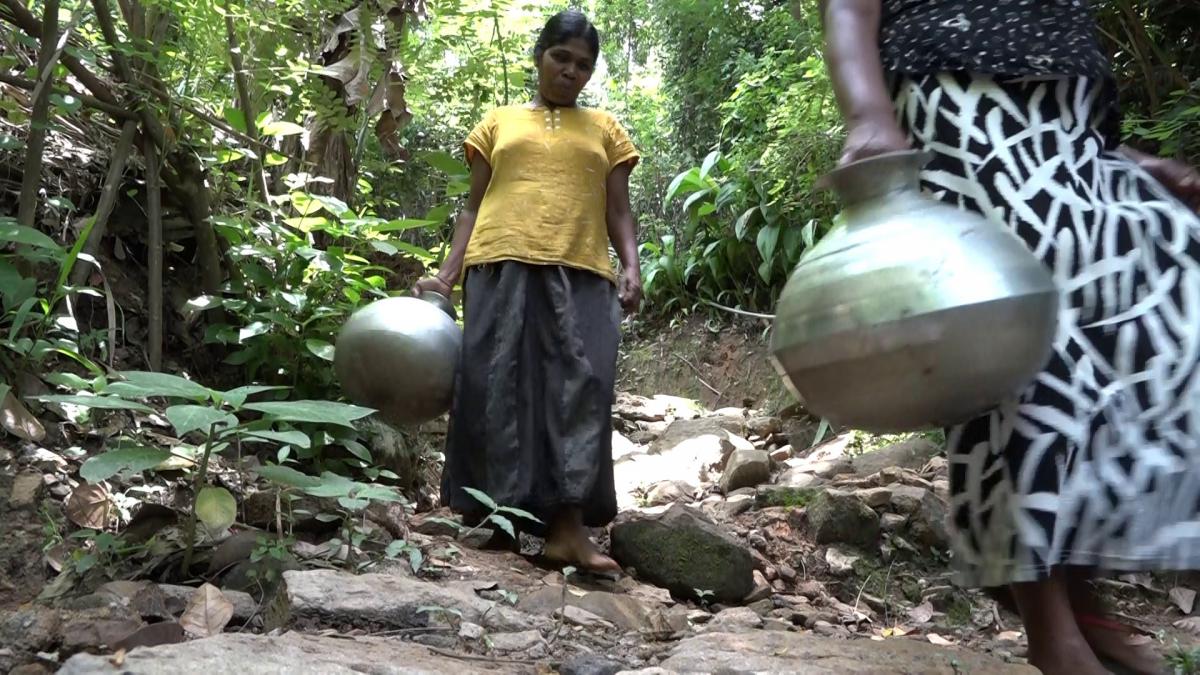
Women fetching water from the nearby well
Rural women as both beneficiaries and change agents
Rural women are an important, if not the deciding stakeholder, in the overall wellbeing of rural communities. If we strive to achieve water and food security, healthy diets, and the eradication of poverty, rural women are not only the beneficiaries, but also the key change agents in accelerating change at the agricultural, community and household levels. Therefore, we should not only recognize, celebrate and empower rural women today, but all days.

This initiative of Solidaridad is part of the project Reaching the Unreached Estates and Surrounding Communities on Equitable Water, Sanitation, Hygiene (WASH) for Improved Health and Nutrition funded by the European Union Delegation to Sri Lanka and the Maldives Integrated Rural Development Programme. It is being implemented in 52 estates and 105 surrounding rural villages and 81 provincial schools in the Central and Uva Provinces of Sri Lanka, in partnership with Nucleus Foundation, the Institute of Social Development and Central and Uva Provincial Councils, reaching over 200,000 beneficiaries in rural areas.
